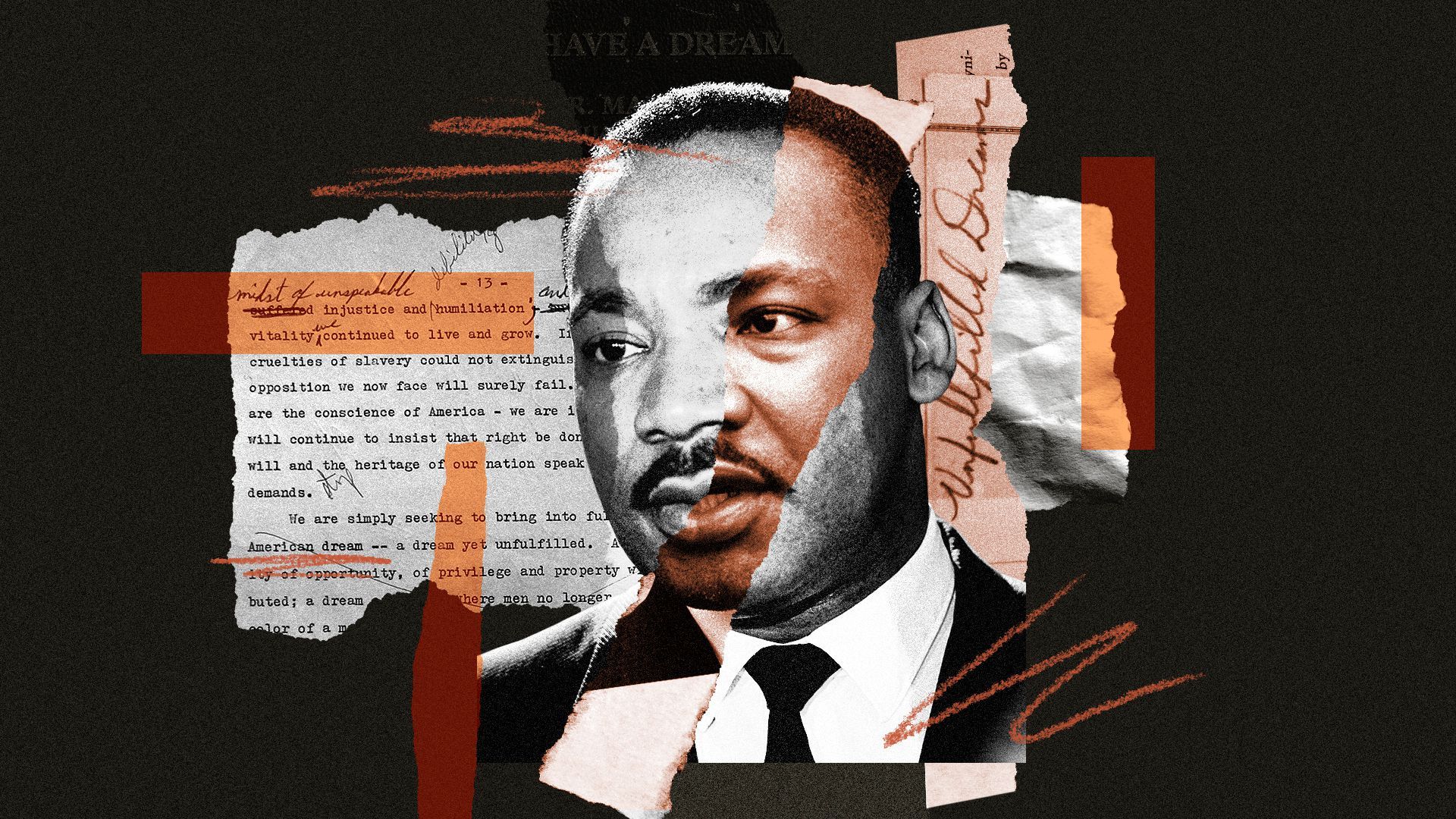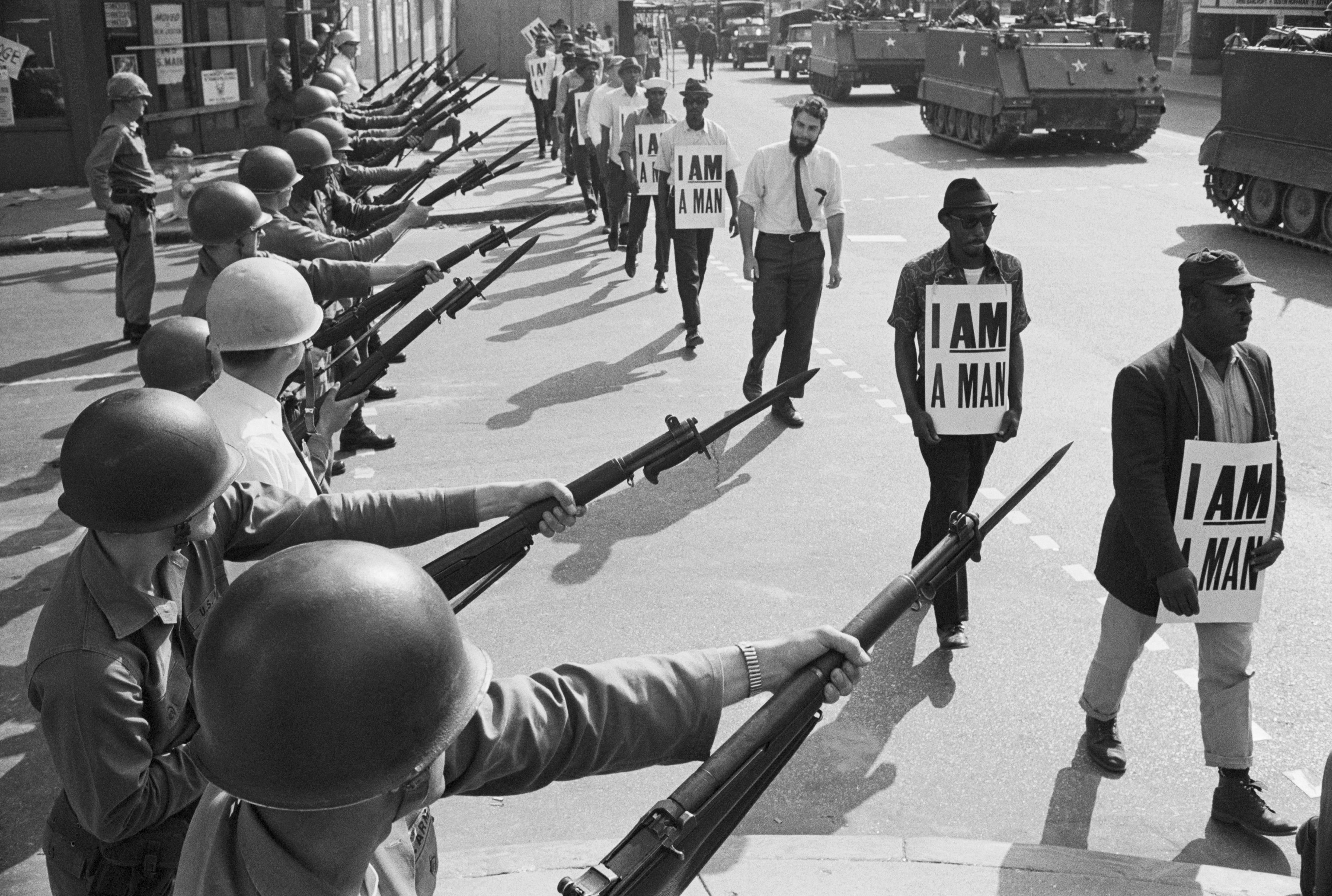
Photo Illustration: Lindsey Bailey/Axios. Photos: Stephen Chernin/Stringer, Mario Tama, Dia Dipasupil, Bettmann, Don Uhrbrock/Getty Images
Words from Martin Luther King Jr.’s 1963 “I Have a Dream” speech about a colorblind nation are repeated every MLK Day. But civil rights advocates say the now-frequent cherry-picking of quotes distorts his views and masks today’s systemic racism.
Why it matters: The U.S. still faces a reckoning almost three years after the death of George Floyd — along with a conservative backlash. The divided nation is using King’s words very differently.
State of play: King’s “Dream” speech envisions a country that lives up to the promises made in its founding documents about equality.
Yes, but: King also brought up police brutality and systemic poverty hurting African Americans in the same address.
- He then told NBC News four years later: “I must confess, that dream that I had that day has, at many points, turned into a nightmare.” King cited persistent discrimination, poverty and the Vietnam War for his pessimism.
The big picture: In recent years, some Republicans have selectively used King’s colorblind words from the “Dream” speech to attack civil rights programs and initiatives.
- Florida Gov. Ron DeSantis (R) invoked King when he proposed his “Stop Woke Act” aimed at limiting discussions around slavery and racism in public schools.
- Then-Senate Majority Leader Mitch McConnell referenced King’s speech when he won re-election in 2020. But McConnell opposed the reauthorization of the Voting Rights Act — a bill King saw signed into law.
- Republican Rep. Kevin McCarthy, now House Speaker, tweeted in 2021: “Critical Race Theory goes against everything Martin Luther King Jr. taught us.”

Reality check: King repeatedly brought up the legacy of enslavement and the need to address structural racism in 1967 — comments that scholars say were precursors to critical race theory.
What they’re saying: King “said to us that we must address fully systemic racism, systemic poverty, ecological devastation, and militarism,” Rev. William Barber of the Poor People’s Campaign tells Axios.
- “It’s dishonoring of the memory of King not to raise that full critique, no matter how unnerving, unsettling or uncomfortable it is.”
- “We fundamentally don’t want to admit that every system in this country was built on racial oppression,” Taifa Smith Butler, president of the racial justice think tank Demos, said. That’s why we continue to keep King “in a box.”
The other side: Racial justice protesters in 2020 repeated King’s words about police brutality and the right to demonstrate. But they also came under criticism after some protests — like those in Kenosha, Wisconsin — became violent.
Between the lines: Misuses of King’s quotes go across the political spectrum because his more well-known colorblind comments have become “settled record,” Hajar Yazdiha, author of the forthcoming book “The Struggle for the People’s King: How Politics Transforms the Memory of the Civil Rights Movement,” tells Axios.
- “What’s really interesting about colorblindness is that it sounds perfect. In theory. But in reality, colorblindness is a way to obfuscate systemic inequality,” said Yazdiha, a USC sociologist.
- Yazdiha said moderate Democrats have been guilty of it, too, as they repeat colorblind views instead of confronting difficult systemic problems that will spark political confrontations.
What’s next: The battle against critical race theory, often conflated with teachings on systemic racism, is expected to continue this year.
- Some books about King have already been banned.






